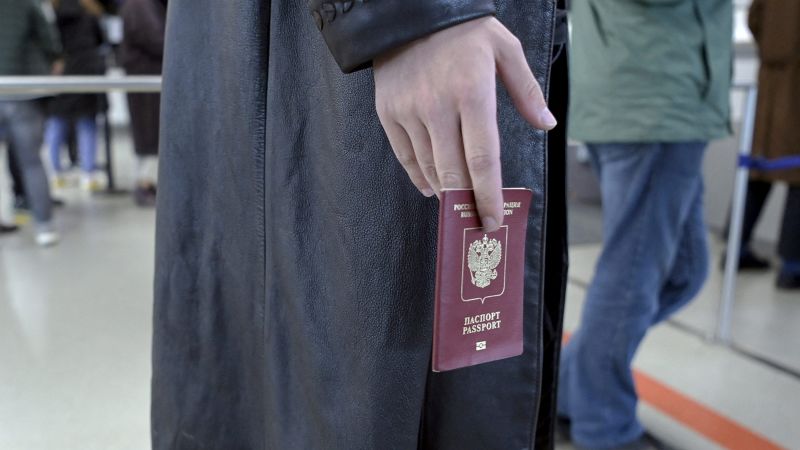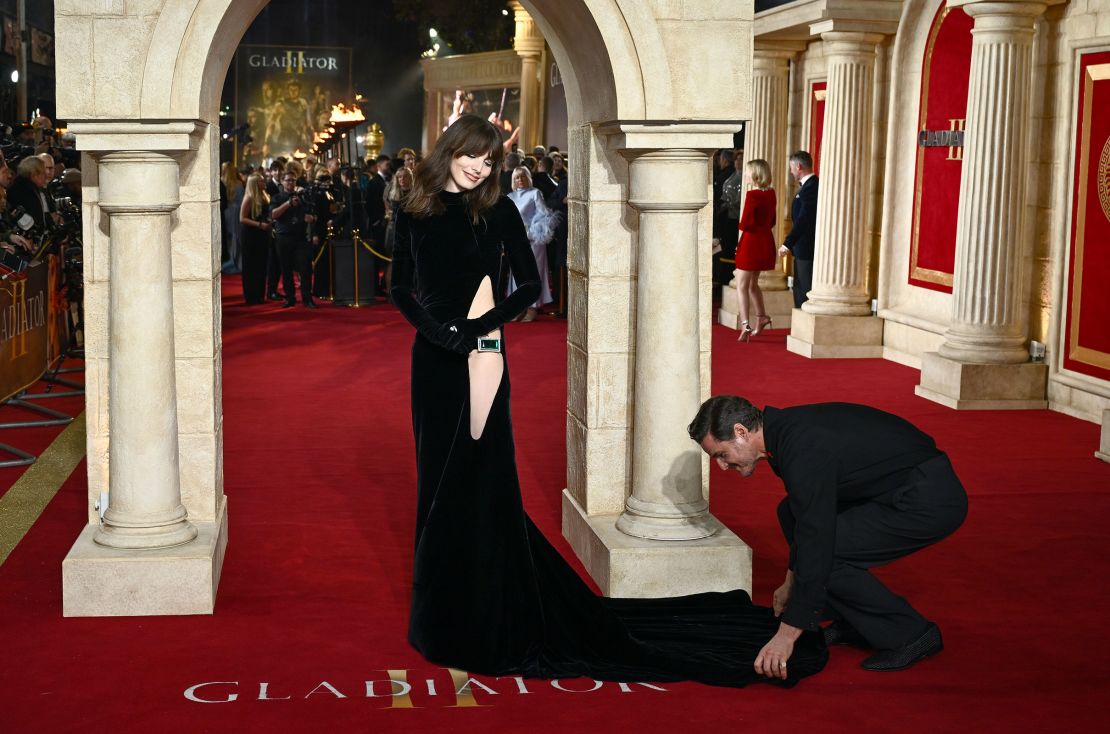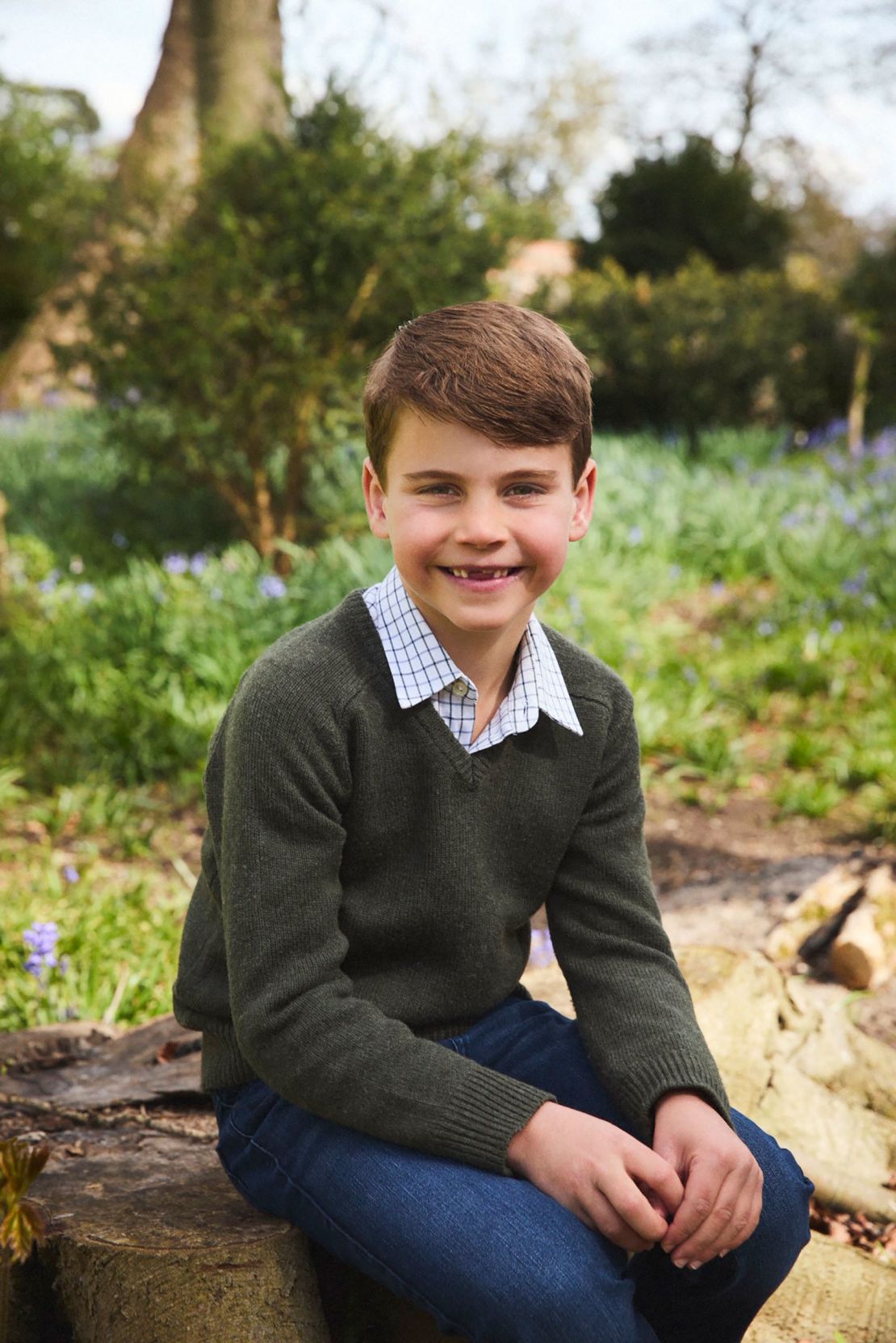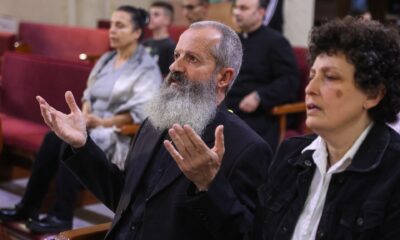CNN
—
Since the start of 2022, Russian influencer Egor Melo has been traveling around Europe. Last year, he went to Zurich to see Taylor Swift’s Eras Tour, celebrated New Year’s Eve in Paris, and enjoyed the historical sights of Nuremberg, Germany.
After Russia invaded Ukraine in February 2022, direct flights between Russia and the EU were suspended. In September of the same year, the EU suspended its visa facilitation agreement with Russia, making Russian citizens face a lengthier, more expensive visa approval process to enter the EU.
Processing fees for Schengen visas — which allow non-EU citizens to travel within the 29-country European Schengen area — have increased due to the suspension of visa-free agreements, some EU countries, many of which border Russia are offering fewer consular appointments for Russians, and the EU has advised member states to scrutinize Russian applications thoroughly.
The new rules don’t prevent Russian tourists from traveling to Europe — nor is there anything illegal about their trips. It’s just making the process more difficult and expensive.
Latvia, Norway, Poland, Finland, Estonia, Lithuania, and the Czech Republic have gone even further — issuing full bans on almost all tourist visas for Russian citizens.
But on his Instagram, dedicated “to showing that travel in Europe is accessible to everyone,” Melos claims he’s “been in two of these countries in the past year with a tourist visa and had no problems.”
His advice? Obtain a visa from another Schengen country. “For example, fly to Italy and from there travel to these countries.”
Melos declined a CNN request to talk about his claims.
The Baltic states’ ban only applies to Russian citizens who cross the external Schengen border — not entry from other Schengen countries.
“Once you are in the Schengen zone, you can travel within the Schengen zone anywhere, because there is, in principle, no internal control (…) This is not unlawful. This is the Schengen system,” Sarah Ganty, co-author of a 2022 Yale Journal of International Law paper that opposed the visa bans, told CNN.
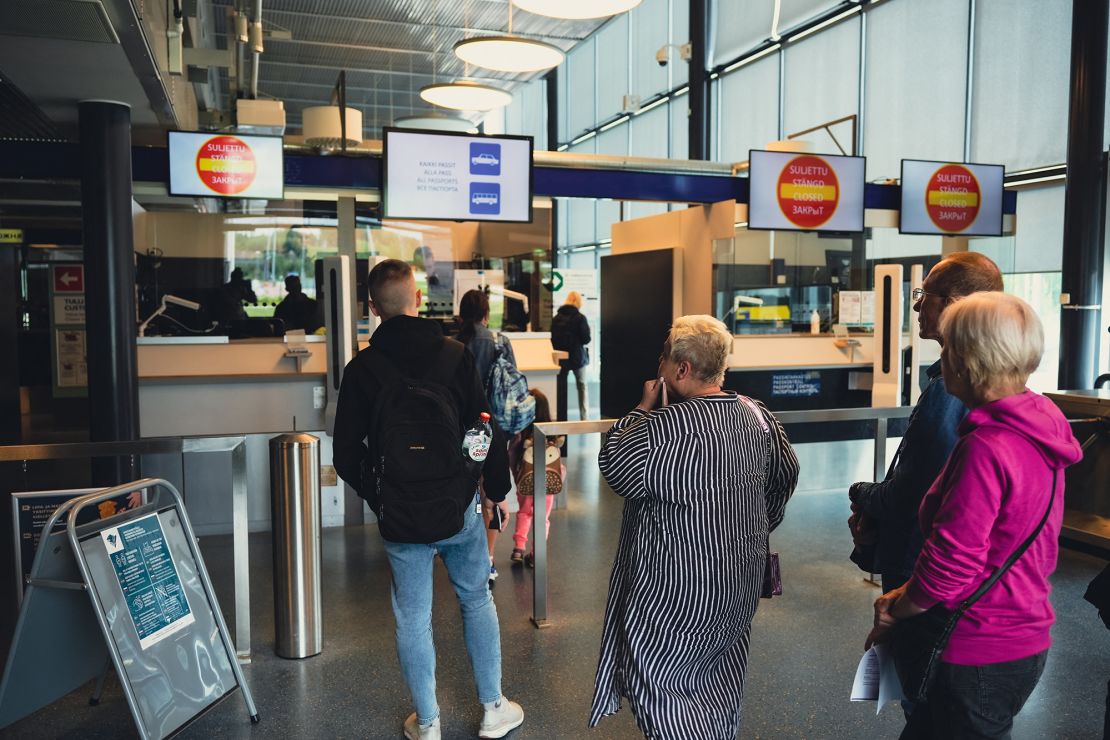
Melo isn’t alone in continuing to travel. The interior minister for Latvia reportedly condemned data presented at an EU meeting, which stated that 565,069 Schengen visas were issued to Russians in 2024: 90% for tourism. It’s a massive drop from the four million issued pre-pandemic in 2019, but an increase of 25% from 2023. The visa refusal rate for Russians diverges strongly among member states — from 1% to 65% in the first half of 2024, according to an EU report.
“The stabilization of Schengen visa issuance” has contributed to the growth in demand for travel to Europe, the vice president of the Russian Union of Travel Industry (ATOR), claimed in an interview with Russian publication Vedomosti.
One well-known travel blogger from Russia, who asked to not have their name included for fear of future visa applications being denied, agreed with ATOR. They’ve recently visited Norway — a country that stopped issuing visas to Russian tourists in May 2024.
“Right now, obtaining a visa requires many additional documents that weren’t needed before, such as purchased flight tickets, hotel bookings, or even tax certificates,” they said. “Jokes about needing a doctor’s note (to travel) soon are becoming more common.”
But they still see travel as accessible.
“Let’s be honest — getting an EU residence permit, like a Spanish digital nomad visa, isn’t that difficult right now. Some people are opting for a three-year EU residence permit instead of a visa, which has also become a common practice,” the blogger said. “For example, if you have children living in the Baltics, the easiest way to get there is through Italy, France or Spain. The scheme is simple: you fly to Rome, spend some time there, and then travel through the Estonia-Russia border after first flying to your relatives.”
No direct flights means that “Turkey, Armenia, Azerbaijan, Georgia and Serbia” had become the main transit countries for those living in Russia’s West, while “if you live in the Russian Far East, for example, in Vladivostok, it might be easier to fly through China,” according to them. But there are ways to avoid the extra costs when returning to Russia.
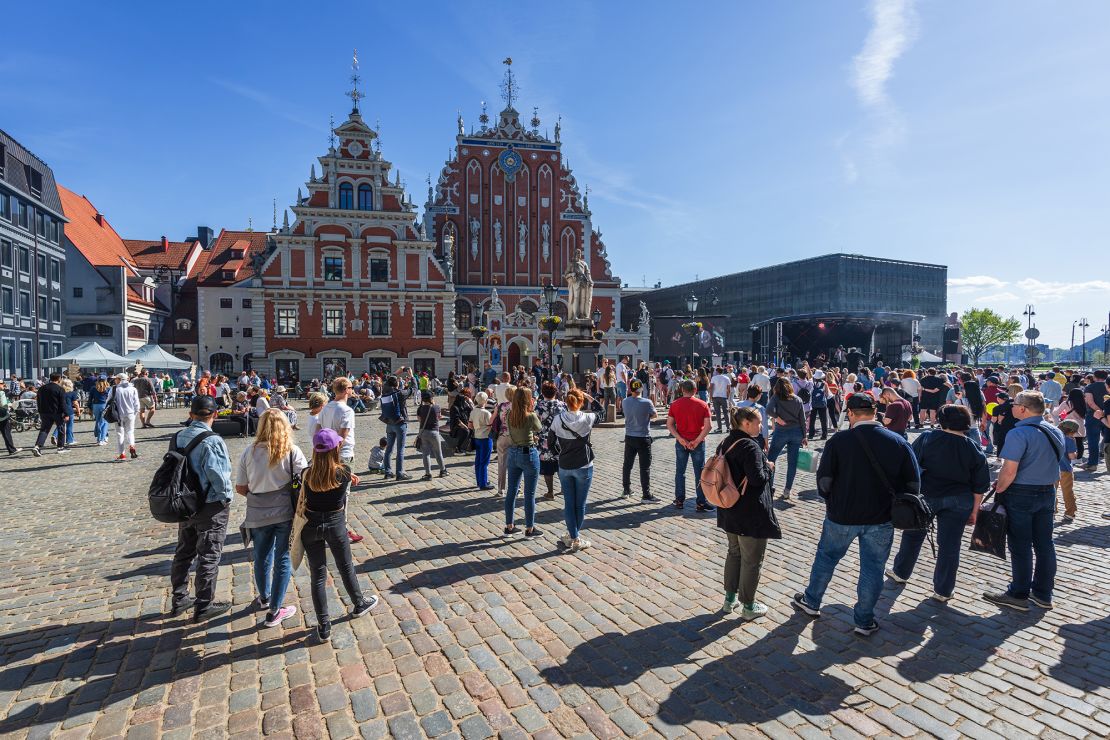
Even without an EU residence permit, it is possible to enter Russia through Estonia, Latvia, Lithuania and Poland, the travel blogger said.
“That’s why, in the summer, there are long queues at the Narva-Ivangorod border, as flying to Tallinn is cheap, and many people with tourist visas prefer to return via the Estonian-Russian border rather than through, say, Istanbul or Antalya.”
Russian travel companies are still offering tours to countries that have supposedly blocked visas for Russian tourists. For example, one company, YouTravel, is currently offering a 15-day road trip through Finland, Sweden, Norway and Latvia in June. All these countries, apart from Sweden, have banned Russian tourists. The agency says it will assist in obtaining a visa free of charge.
So how easy is it really to obtain a visa? Asked about the process to obtain a visa to Latvia, which has a complete ban on issuing tourist visas to Russians, a sales assistant at St Petersburg-based agency Visateka said they could help obtain entry “through a third country.” They advised that the easiest document-wise for a June travel date would be France.
For the equivalent of $300, the sales assistant said Visateka could reserve flights and a hotel, and prepare documents to take to the French embassy for a visa appointment. Visateka claims that for France, Italy and Spain, the chances of having a visa approved were around 93%. Their website claims that in the first two weeks of April, they’ve obtained 20 visas for Russian citizens to enter Latvia, 93 to Lithuania and 20 to Poland.
“Last year, we visited Riga to see the Christmas markets,” Daria from St. Petersburg told CNN. She requested her last name be omitted in fear of her next Schengen visa application being denied. With a Spanish visa, she flew to Istanbul, then to Madrid, before boarding a flight to the Latvian capital on the same day.
“No questions were asked at the airport,” she said about the use of her Spanish visa to visit Riga. “It’s common practice.”
“I’m not part of this war, I don’t support Putin. I don’t understand why I should be discriminated against and treated as if I’m a threat.”
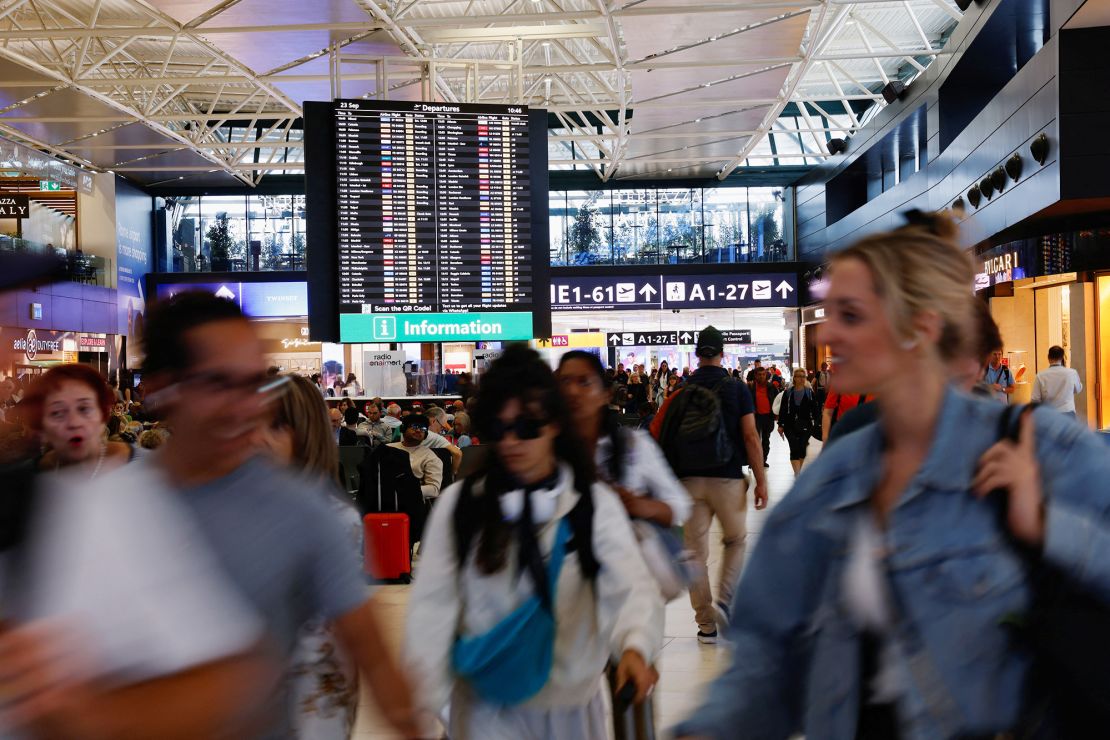
The Vinsky online travel forum is populated with similar stories. One holder of a French visa shared their experience of flying via Vienna, then taking a plane to Riga in the evening: “I was worried about what to say, but in the end (at Vienna airport) they asked exactly zero questions.”
Another, who had been granted an Italian tourist visa, said they flew to Rome and then on to Riga. One traveler from Moscow asked, “If you enter Italy with an Italian visa and fly from Milan to Amsterdam a few days later, what are the risks?” Another responded, “Once you get a visa, you’ll be able to travel along the route you’ve planned without any stress.”
Regarding the increase in visas issued in 2024, the EU Commission told CNN that it “closely monitors the implementation of the guidelines through the Blueprint Network.” The Blueprint Network is the EU’s framework for monitoring migration. “The Commission is working with Member States to promote consistent implementation of the guidelines.”
Last year, Hungary extended visa exemptions to Russians and Belarusians, and according to the European Travel Commission’s statistics, Russian arrivals to Hungary increased by a third. In April 2024, Romania restarted issuing short-stay visas to Russian tourists on a discretionary basis after experiencing a drop in tourist revenue, another ETC report states. In early December, Italian visa centers in Moscow reduced processing times for visas.
As the war grinds into its fourth third year, frustration is growing. Rihards Kozlovskis, Latvia’s minister of internal affairs, has called on EU countries to join Latvia in banning Schengen tourist visas for Russian citizens. Speaking at a meeting of the EU Justice and Home Affairs Council in Brussels, he said it is member states’ “moral duty to deny such a service.”
“We are facing both illegal border crossings and acts of sabotage, such as the burning of the Museum of the Occupation, drones crossing the border, propaganda attempts to influence public opinion, etc.,” Kozlovskis said. “Therefore I urge all member states to take this threat seriously.”
The Russian travel blogger CNN spoke to said he would be “disappointed” if such sanctions were introduced.
“Russia has its own restrictions on travel to so-called ‘unfriendly’ countries. Police officers, judges and government employees are already prohibited from traveling, so those connected to the state are not going anywhere anyway,” he said. “I don’t think ordinary Russian travelers pose any kind of threat to the Latvian minister with their presence.”
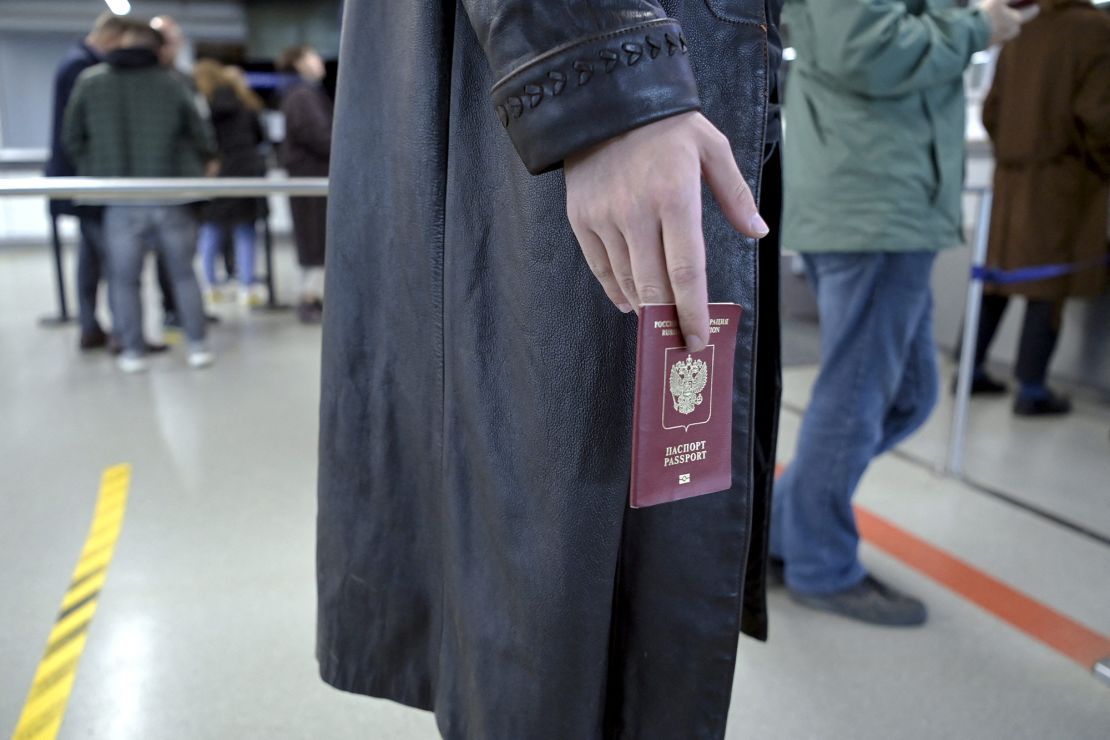
A European Commission spokesperson said that the organization had “adopted clear sets of guidance to support Member States to deprioritize visas for Russians and focus on security and border control. Heightened scrutiny should be performed in a way that preserves the right to seek asylum and prevents risks of non-refoulement.”
Ganty, the law academic, argued that such bans were never lawful. She described the de facto national-level ban against Russian citizens — introduced by Poland, Finland and the Baltic States — as a breach of EU law.
“These Russians who are applying for Schengen visas have mainly been depicted as tourists having fun in Europe, but there are lots of people who have family members across the border, there are people who are dissenters, there are health reasons why someone might need a short-stay visa,” she said.
“I think we really need to continue the dialogue with Russian citizens, especially those who are trying to flee the regime and oppose the regime. I think it’s really important to be welcoming towards them.”
When Mark Temynsky, a Ukrainian-American and fellow at the Atlantic Council’s Eurasia Center, visited Montenegro in 2023 with his cousins, he was surprised at the number of Russians who were also there — and the reaction they got from the Russians while posing with a Ukrainian flag by St John’s Fortress, a historic landmark overlooking the town of Kotor.
“We got some looks and stares from Russian speakers who were making comments (…) we’re just taking photos with the flag,” he said.
“In Greece, as well as in Cyprus, when I was there in August of 2023, it was still very heavily visited by ethnic Russians and Russian speakers who were on holiday there and just again — from a moral perspective — it just did not sit with me that these people are supporting the country’s war and then go on vacation.
“I have many family and friends in Ukraine who haven’t been on vacation in several years because they don’t know where to go, and many of them are not permitted to leave the country and fear for their safety. It’s very strange.”
He said he wants the EU to go further with bans on tourist visas.
“I would argue that European countries aren’t doing this to punish the Russians, just for the sake of punishing the Russians. It’s to explore other avenues to put additional pressures on Russia. And I think at this point, you gotta get creative, and if this is another way to do that, then I think there’s no harm in trying to see what happens.”

